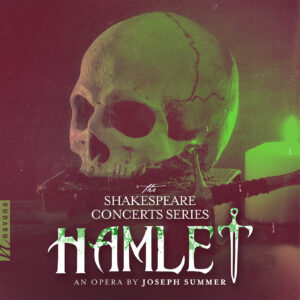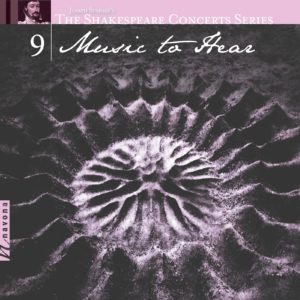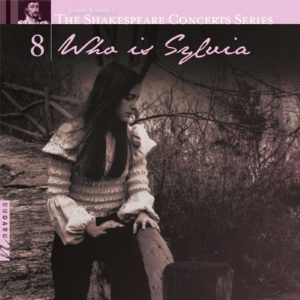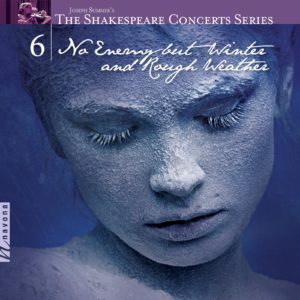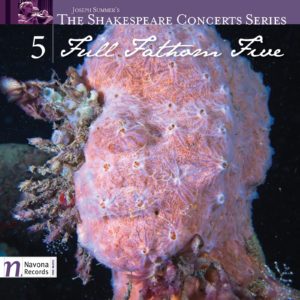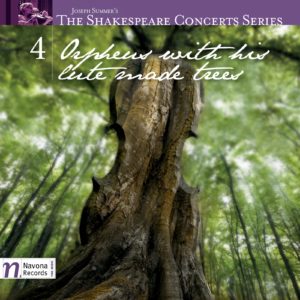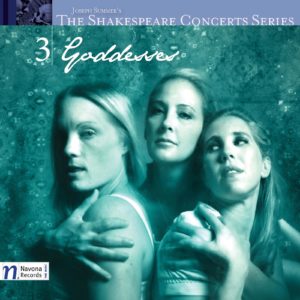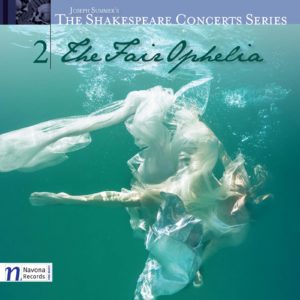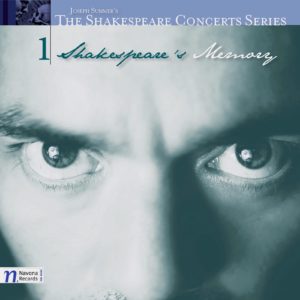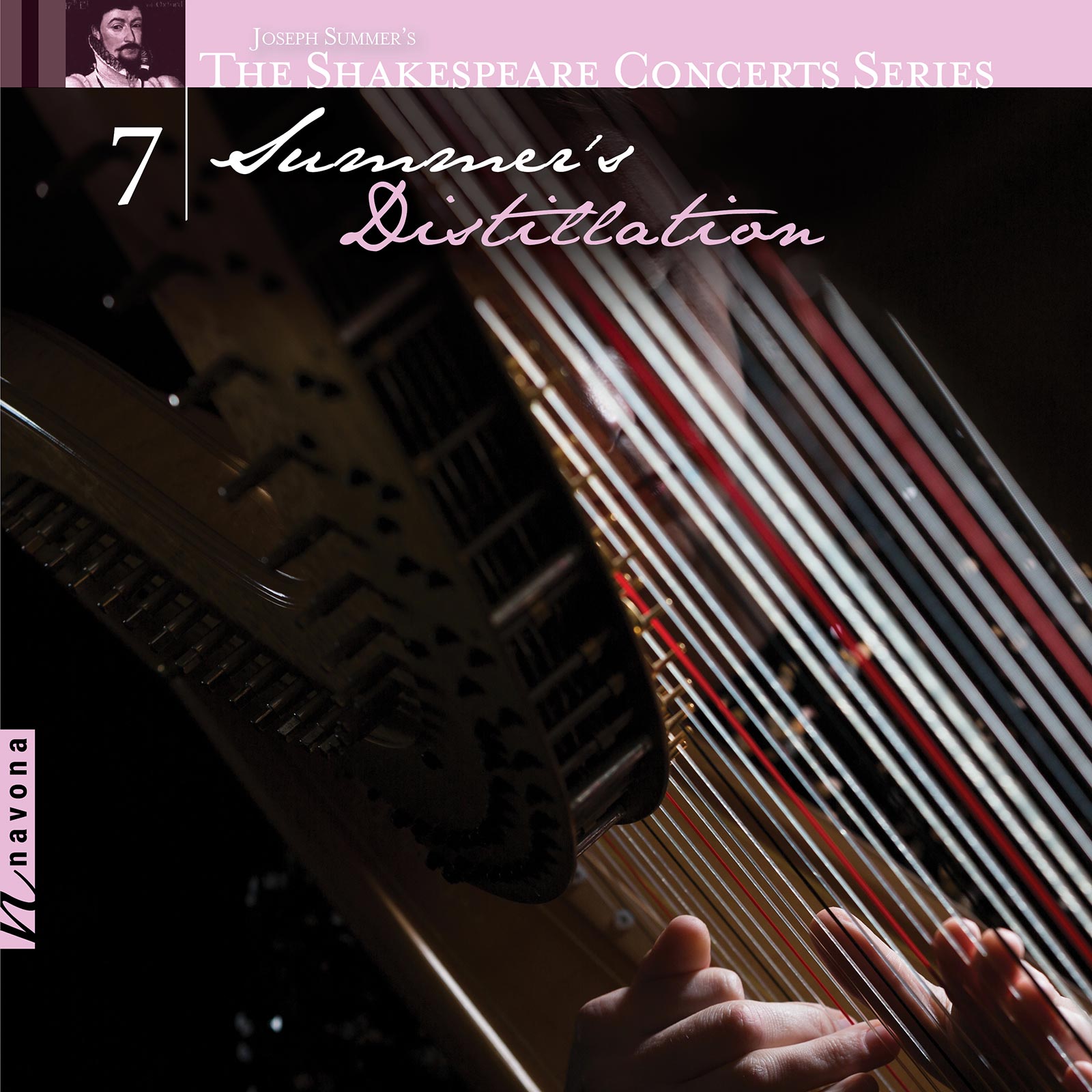
Share Album:
Summer’s Distillation
Joseph Summer composer
With SUMMER’S DISTILLATION, Joseph Summer, as composer, offers a new look at the timeless texts credited to William Shakespeare. As artistic director, Summer presents settings by Brahms, R. Schumann, and Benjamin Pesetsky, curating an overall impressive collection of works for voice, harp, and horns.
Sonnets V and VI for voice, horns, and harp is raw and unfiltered—in a complex tonal language which illuminates stark text is the foreground. Sonnet CIV is an art song for mezzo soprano wherein the harp accompaniment plays the role of a lute or acoustic guitar. It is simultaneously heavy and graceful. Sonnet XCI for voice and horns, on the other hand, is regal and declamatory. Sonnet LXXIII for vocal ensemble, harp, and horns paints a dark forest scene—a cacophony of textures as soloists take turns, yet no voice or instrument is background. Finally, Sonnet CXXXIII, a duet for tenor and soprano against the scene painting of harp and horns, is a complaint about the interminably long delay between Summer’s proclamation of adoration for his (eventual) wife, Lisa Summer, and her prorogued agreement to accept his offer of love.
If by Your Art from The Tempest is a through-composed soprano aria with atmospheric harp accompaniment. The harp’s echoed scale fragments guide the thoughts of the actress—starting in pain and finishing in sweet respite. O God, That I Were a Man from All’s Well That Ends Well is a monologue running the gamut of emotions, from “I would eat his heart in the marketplace” to “she is undone.” This is balanced by music of centuries later, with Robert Schumann’s Drei Gesänge (Three Songs), Op.95, for soloist and harp, presenting settings of texts by Karl Julius Körner and three of the Hebrew Melodies by Lord Byron. Some of the highest inspiration for this album is Brahms’ Vier Gesänge, Op.17. Upon hearing it the first time, Summer recounts: “I experienced the music as a transcendent epiphany. It changed the course of my life.” It is extraordinary indeed, and Summer’s ensemble justifiably gives it life.
SUMMER’S DISTILLATION concludes with Answer and Question from All’s Well That Ends Well by Boston-based composer and writer Benjamin Pesetsky, commissioned by Summer for this collection of works. This work both serves to aptly round off the piece and leave listeners wanting more.
Listen
"Certainly a must hear record for Shakespeare fans"
Track Listing & Credits
| # | Title | Composer | Performer | |
|---|---|---|---|---|
| 01 | Sonnet No. 5 - Sonnet No. 6 | Joseph Summer | Jennifer Sgroe, Jessica Lennick, Thea Lobo, Sophie Michaux, Neal Ferreira - voices; Franziska Huhn, harp; Kevin Owen, Josh Michal - horn | 5:03 |
| 02 | Sonnet No. 104 | Joseph Summer | Sophie Michaux, mezzo soprano; Franziska Huhn, harp | 3:49 |
| 03 | Sonnet No. 91 | Joseph Summer | Neal Ferreira, tenor; Kevin Owen, Josh Michal - horns | 3:09 |
| 04 | Sonnet No. 73 | Joseph Summer | Jessica Lennick, Jennifer Sgroe, Thea Lobo, Sophie Michaux, Neal Ferreira - voices; Franziska Huhn, harp; Josh Michal, Kevin Owen - horns | 3:39 |
| 05 | Sonnet No. 133 | Joseph Summer | Jessica Lennick, soprano; Neal Ferreira, tenor; Franziska Huhn, harp; Kevin Owen, Josh Michal - horns | 8:44 |
| 06 | The Tempest: If By Your Art | Joseph Summer | Jessica Lennick, soprano; Franziska Huhn, harp | 6:43 |
| 07 | O God, That I Were a Man | Joseph Summer | Thea Lobo, mezzo soprano; Kevin Owen, horn | 3:35 |
| 08 | 3 Gesänge, Op. 95 (Arr. for Harp & Voice): No. 1, Die Tochter Jephtas | Robert Schumann | Jennifer Sgroe, soprano; Franziska Huhn, harp | 2:29 |
| 09 | 3 Gesänge, Op. 95 (Arr. for Harp & Voice): No. 2, An den Mond | Robert Schumann | Jennifer Sgroe, soprano; Franziska Huhn, harp | 2:10 |
| 10 | 3 Gesänge, Op. 95 (Arr. for Harp & Voice): No. 3, Dem Helden | Robert Schumann | Jennifer Sgroe, soprano; Franziska Huhn, harp | 2:32 |
| 11 | 4 Gesänge, Op. 17 (Version with Harp): No. 1, Es tönt ein voller Harfenklang | Johannes Brahms | Jessica Lennick, Jennifer Sgroe, Sophie Michaux, Thea Lobo - voices; Franziska Huhn, harp; Josh Michal, Kevin Owen - horns | 3:15 |
| 12 | 4 Gesänge, Op. 17 (Version with Harp): No. 2, Lied von Shakespeare | Johannes Brahms | Jessica Lennick, Jennifer Sgroe, Sophie Michaux, Thea Lobo - voices; Franziska Huhn, harp; Josh Michal, Kevin Owen - horns | 2:02 |
| 13 | 4 Gesänge, Op. 17 (Version with Harp): No. 3, Der Gärtner | Johannes Brahms | Jessica Lennick, Jennifer Sgroe, Sophie Michaux, Thea Lobo - voices; Franziska Huhn, harp; Josh Michal, Kevin Owen - horns | 3:36 |
| 14 | 4 Gesänge, Op. 17 (Version with Harp): No. 4, Gesang aus Fingal | Johannes Brahms | Jessica Lennick, Jennifer Sgroe, Sophie Michaux, Thea Lobo - voices; Franziska Huhn, harp; Josh Michal, Kevin Owen - horns | 4:58 |
| 15 | Answer and Question | Benjamin Pesetsky | Jennifer Sgroe, Jessica Lennick, Thea Lobo - voices; Franziska Huhn, harp; Josh Michal, Kevin Owen - horns | 6:25 |
Drei Gesänge, Op.95
Text by Karl Julius Körner; based on three of the Hebrew Melodies by Lord Byron
4 Gesänge, Op. 17 (Version with Harp): No. 1, Es tönt ein voller Harfenklang
Text by Friedrich Ruperti
4 Gesänge, Op. 17 (Version with Harp): No. 2, Lied von Shakespeare
Text by August Wilhelm Schlegel
4 Gesänge, Op. 17 (Version with Harp): No. 3, Der Gärtner
Text by Josef Karl Benedikt von Eichendorff
4 Gesänge, Op. 17 (Version with Harp): No. 4, Gesang aus Fingal
Anonymous translation of Ossian (James MacPherson)
All pieces recorded April 10-11, 2017 at Mechanics Hall in Worcester MA, except for Track 7, which was recorded September 30, 2015 in the same location.
Music Director & Conductor Tim Ribchester
Recording Engineer Joseph Chilorio
Producer Joseph Summer
This recording was made possible by a generous grant from the Mattina R. Proctor Foundation.
Executive Producer Bob Lord
Executive A&R Sam Renshaw
A&R Director Brandon MacNeil
VP, Audio Production Jeff LeRoy
Audio Director Lucas Paquette
Mastering Shaun Michaud
VP, Design & Marketing Brett Picknell
Art Director Ryan Harrison
Design Edward A. Fleming
Publicity Patrick Niland, Sara Warner
Artist Information
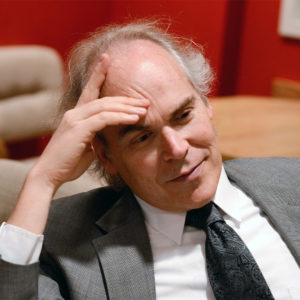
Joseph Summer
Joseph Summer began playing French horn at the age of 7. While attending the Eastern Music Festival in North Carolina at age 14 he studied composition with the eminent Czech composer Karel Husa. At age 15 he was accepted at Oberlin Conservatory, studied with Richard Hoffmann, Schönberg’s amanuensis, and graduated with a B.M. in Music Composition in 1976. Recruited by Robert Page, Dean of the Music Department at Carnegie Mellon University, Summer taught music theory at CMU before leaving to pursue composition full time.
Jessica Lennick
JESSICA LENNICK “is a complete package, including a terrific smile and stage presence to go along with her pleasing voice,” according to The Baltimore Examiner. She has used these qualities to great effect on the opera stage, singing for Washington Camerata of DC, Chesapeake Chamber Opera, and Center City Opera Theater, among others.
Neal Ferreira
NEAL FERREIRA, tenor, especially noted for his dynamic and captivating stage presence, is quickly gaining national recognition. Mr. Ferreira opened the current season with his Boston Symphony Orchestra and Symphony Hall debut as Ein Tierhändler in Der Rosenkavalier under the baton of Maestro Andris Nelsons.
Thea Lobo
Hailed as “excellent”, “impeccable”, “limpidly beautiful”, “impressive”, “stunning”, and “Boston’s best”, Grammy-nominated mezzo-soprano Thea Lobo’s 2016-17 season includes performances with Boston Symphony Orchestra, Bucknell Bach Festival, Halcyon Chamber Series, Sunshine City Opera, Callithumpian Consort, Sarasota Choral Society and Guerilla Opera.
Sophie Michaux
SOPHIE MICHAUX, mezzo-soprano, was born in London and raised in the French Alps. The 28-year-old mezzo was noted as a “warm and colorful mezzo” (Opera News) and as “a study in color…Michaux’s expressive quality and variety is remarkable ” (Arts Impulse).
Jennifer Sgroe
JENNIFER SGROE, soprano, began her musical career in dance and musical theater before transitioning to opera. She has performed across the US in opera, concert and musical, theatre and internationally as a soloist at festivals in Finland, England and Austria.
Franziska Huhn
FRANZISKA HUHN, harpist, is a vibrant musical force as a soloist, chamber musician, pedagogue and orchestral performer. Ms. Huhn has given solo recitals throughout the United States and worldwide in Lithuania, Norway, Poland, Turkey, Georgia, Russia, Syria, Pakistan and Germany, including performances for German Presidents Johannes Rau and Horst Koehler at Schloss Bellevue.
Kevin Owen
KEVIN OWEN is a journeyman musician and educator, performing with symphony orchestras, chamber music groups, swing bands, rock bands, jazz ensembles, and in the recording studio. Principal horn of the Boston Pops Esplanade Orchestra, the Boston Lyric Opera, the Rhode Island Philharmonic, the Boston Landmarks Orchestra, and the Boston Philharmonic, for 25 years he has been “first-call” horn substitute with the Boston Symphony and Boston Pops Orchestra.
Joshua Michal
JOSHUA MICHAL, a native of Ohio, performs regularly with the Cincinnati Symphony Orchestra and the Dayton Philharmonic Orchestra. He is currently a member of the Hartford Symphony Orchestra and plays 2nd horn with the Lancaster Music Festival.
Benjamin Pesetsky
BENJAMIN PESETSKY is an American composer of dramatic instrumental and vocal music. NOW Magazine called his opera scene Love Redux “one of the best episodes” on a program of new works staged by Tapestry Opera in Toronto and his music has also been performed by ensembles including the Albany Symphony Orchestra, The American Symphony Orchestra, and New England Conservatory’s Jordan Winds.
Tim Ribchester
TIM RIBCHESTER, Music Director of The Shakespeare Concerts since 2016, is recognized internationally as a versatile and inspiring musical leader and collaborator. A resident conductor of the Trentino Music Festival, Italy (Dido and Aeneas, L’incoronazione di Poppea, Rinaldo); and Assistant Conductor with North Carolina Opera (Eugene Onegin, Das Rheingold), he has also made concert debuts in the past two seasons with the Bacau Philharmonic of Romania and Sinfonietta Vidin, Bulgaria.
Notes
Summer’s Distillation
Music inspired by Brahms’s Four Songs for Women’s Chorus, Horns, and Harp
Then were not summer’s distillation left,
A liquid prisoner pent in walls of glass…
The title of this album is misleading in one regard: Schumann’s Drei Gesänge predates Brahms’s Vier Gesänge by more than a decade. However, this is my distillation, a title I derived from Shakespeare’s Sonnet V, and thus I feel entitled to narrate from my distant perspective in time.
When I was a student at Oberlin Conservatory in the early 1970s, a coed asked me to sit in on a rehearsal of Brahms’s opus 17. She thought I might have something useful to say about her ensemble’s preparation of the work. I was unfamiliar with it. When I thought “opus 17,” what came to mind was Beethoven’s French Horn sonata, which, as a lackluster but earnest hornist, I had played often. I was shocked when I opened the Brahms score and discovered the ensemble consisted of two horns and harp. How unique and strange! I sat down in the 150 seat Kulas recital hall, alone in the audience, and listened. The opening solo horn appealed to me, but when the women’s voices entered I began to cry; and then weep. I could barely restrain myself from sobbing. I sat transfixed, a liquid prisoner of the awesome beauty of the Brahms, for the entirety of the rehearsal. When the young soprano asked me for criticism, I could offer none. I experienced the music as a transcendent epiphany. It changed the course of my life.
Theretofore I’d never written for voice. Subsequently I could but rarely compose anything lacking it. Over the ensuing years I eschewed the combination of harp and voice, in part because I felt uncomfortable with the idiomatic expectations and the audacity of assuming the right to benefit from the inherent beauty of the instrument. In addition, unlike the rest of the instruments of the orchestra, I couldn’t claim even a modicum of apprehension of how the cumbersome creature worked. Indeed, during the preparation for this concert I have learned from Franziska Huhn how little I still know about the harp. Franziska had to take me by the hand and show me how ineptly I had written for her instrument, even coercing me into my first harp lesson. All of the works of mine on this recording I have rewritten–sometimes significantly–with her assistance.
In 1995 I wrote my first two pieces for harp and voice, more than two decades after hearing the Brahms: If by Your Art, and Sonnet CIV. They were first performed in Prague, before I’d established The Shakespeare Concerts. That year, 2003, I decided I wanted to include the Brahms in the second year of the fledgling series, presuming as I did there would be a second year; and I wanted to write a work which would clearly show my indebtedness to opus 17. I wrote Sonnet CXXXIII for the ensemble of harp and horns, substituting the women’s chorus with a solo soprano and tenor. With unbecoming assumption I had decided that such a piece would perforce sneak its way into the repertoire because–in the future, perhaps posthumously (“for fear of which, hear this thou age unbred: Ere you were born was beauty’s summer dead – Sonnet CIV)–when ensembles contemplated Brahms they might have to consider my contribution. I imagined a music director, hands tied by the necessities of hiring two horns and harp, thinking “what other works can we perform with horns and harp, after all, we’ve hired them already?”
Perhaps even, the additions to this recherché ensemble’s repertoire might encourage more performances of the Brahms? (That is undeniably presumptuous, I know.) Two more works of my own devising on this program continued my endeavor to insert my music next to the opus 17: the opening work, the pairing of Sonnets V and VI, a question and answer, to steal Benjamin Pesetsky’s titular conceit; and Sonnet LXXIII. Adding an ally in my assault on the Brahms citadel, I asked Benjamin Pesetsky to compose a work for the opus 17 ensemble. He obliged with Answer and Question, a setting of Shakespeare from All’s Well that Ends Well.
Continuing the idea of permutations and variations on the Brahms opus 17 ensemble are my Sonnet XCI for two horns and tenor; and “O God, that I were a man,” my interpretation of Beatrice’s passionate call to arms from Much Ado About Nothing.
As for the Schumann, one rarely hears the Drei Gesänge performed as Schumann intended, on harp. I find it interesting that this piece utilizes the poetry of an English lord, though in German, and Brahms’s subsequent Vier Gesänge also employs translations of English texts in two of the four movements; in regards to the second movement, the words are of an English earl, Edward DeVere, the author we refer to as William Shakespeare.
(JSS 09 03 18)
